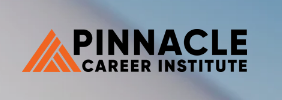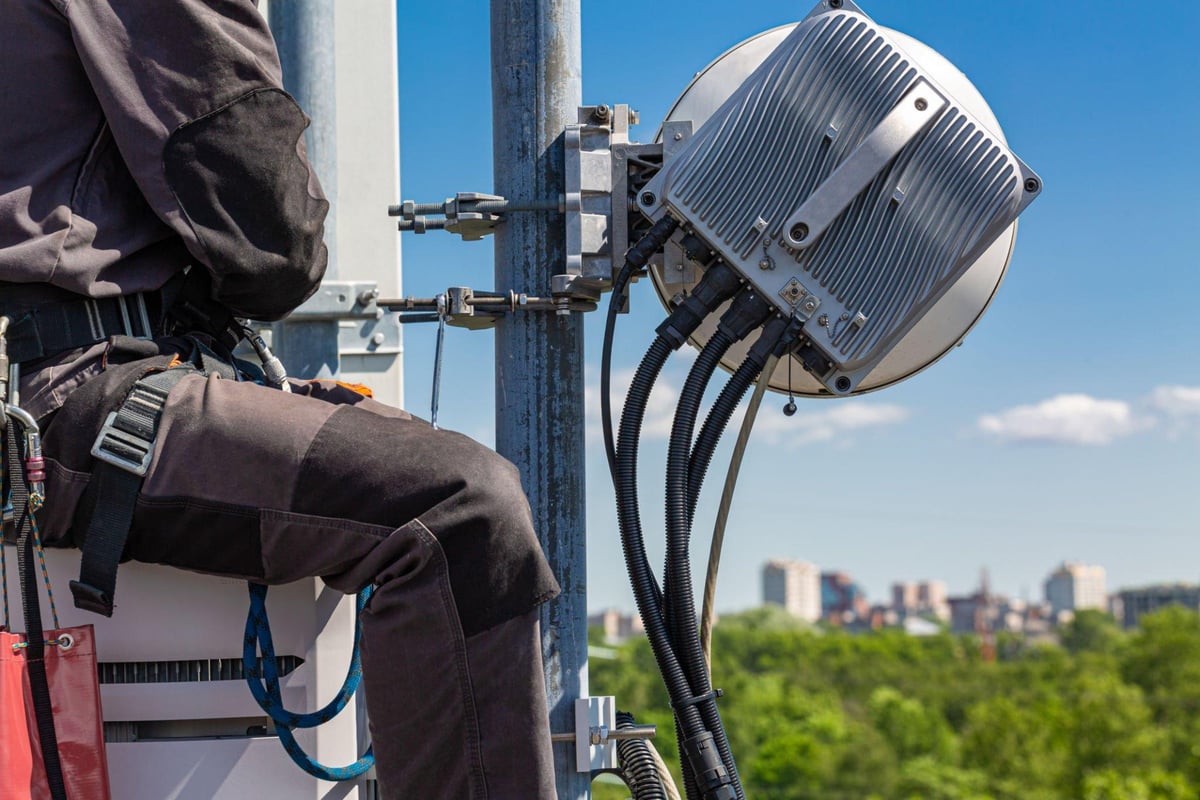
Financial aid (may be available)

No cost info

Financial aid (may be available)

Financial aid (may be available)

$20,500 total
No cost info

Ready for a career change? Join the online tower technician program at Pinnacle Career Institute and get ready for an exciting journey into the world of telecommunications. Our comprehensive course is designed to equip students with the necessary skills and knowledge for entry-level employment as a tower technician.
Course Highlights
Comprehensive training in telecommunications maintenance and modifications.
Certifications in OSHA-10, CPR, First Aid, and Telecommunications Tower Technician 1 (TTT-1) from NWSA.A
Boot Camp and Practical Exam
Conclude the course with an 80-hour boot camp in Kansas City, Missouri.
Earn certifications in OSHA-10, CPR, First Aid upon successful completion.
Take the National Wireless Safety Alliance Telecommunication Technician Level 1 Practical exam after the boot camp.
Career Support
Dedicated support throughout the educational journey, from before, during, and after graduation.
Team of professionals committed to assisting students in achieving success and finding rewarding careers.
Apply to our program today and take the first step towards a rewarding future.
Financial aid (may be available)
If you're interested in a career that combines technical skills, physical stamina, and the opportunity to work outdoors, becoming a Tower Technician could be an excellent choice. In this role, you'll be responsible for installing, maintaining and repairing cellular tower equipment. But before you can start climbing towers, you need to find the right training program. This blog post aims to provide you with all the information you need to find the best Tower Tech classes near you in Kansas City.

A Tower Technician, also known as a Cell Tower Climber or a Telecommunications Tower Technician, is a professional who specializes in installing, maintaining, and repairing cell tower components. This job involves working at great heights and dealing with complex equipment. A Tower Technician must have excellent technical skills, physical stamina, and the ability to work in challenging conditions.
While a high school diploma or equivalent is typically the minimum educational requirement to become a Tower Technician, most employers prefer candidates who have completed a vocational training program. These programs provide students with the knowledge and skills necessary to safely and efficiently install, maintain, and repair tower equipment. The specific curriculum may vary, but most programs cover the following topics:
Safety procedures and protocols
Basic and advanced installation techniques
Equipment troubleshooting and repair
Site inspection and maintenance
When choosing a Tower Tech class in Kansas City, consider the following factors:
Curriculum: Make sure the class covers all the key areas you need to learn about, from safety procedures to equipment repair.
Certification: Some classes offer certification upon completion, which could enhance your employability.
Location and schedule: Choose a class that is conveniently located and fits into your schedule.
Instructor expertise: Look for a class taught by experienced professionals in the field.
Day-to-day activities in a Tower Tech class can vary, but you can generally expect a combination of classroom instruction and hands-on training.
Classroom instruction: During this part of the course, you will learn about the theoretical aspects of the job. This includes understanding the functions of different tower components, learning about safety protocols, and studying installation procedures.
Hands-on training: This is where you get to apply what you've learned in the classroom. You'll practice installing and repairing tower equipment, usually under the supervision of an experienced instructor.
After completing a Tower Tech training program, you may choose to pursue certification. While not always required, becoming certified can demonstrate your competence and commitment to the field, potentially making you more attractive to employers. The certification process typically involves passing a written and practical exam.
Once you've completed your training and obtained any necessary certifications, the next step is to start looking for a job. Many Tower Technicians find opportunities with telecommunications companies, while others work for contractors that specialize in tower installation and maintenance. Networking can also be a powerful tool in your job search, so consider joining professional organizations or online communities related to the field.
After becoming a Tower Technician, you may wish to expand your skills or explore related fields. Here are a few options to consider:
Fiber Optics Technician: This class can teach you how to install, test, and repair fiber optic lines, which are often used in telecommunications networks.
Radio Frequency Engineering: This class can provide you with a deeper understanding of the radio frequency technology used in cell towers.
Safety and Rescue Training: This course can provide additional safety training, which could be beneficial in a career that often involves working at heights.
Once you've established your career as a Tower Technician, you may want to consider ways to further your education and advance in your career. Here are a few options:
Leadership Training: These courses can help you develop the skills necessary to take on a supervisory or managerial role.
Advanced Technical Training: These classes can provide more in-depth knowledge of specific types of equipment or technologies.
Project Management: Project management classes can prepare you for roles that involve overseeing projects and coordinating teams.
Joining professional organizations can provide opportunities for networking, professional development, and staying up-to-date with industry trends. Look for local or national organizations that cater to Tower Technicians or the wider telecommunications industry.
Becoming a Tower Technician can be a rewarding career choice, offering a mix of technical challenges, physical activity, and the chance to work outside in various locations. By choosing the right training program, gaining certification, and continually learning and developing your skills, you can create a successful career in this growing field. As you embark on this journey, remember to take advantage of resources like Dreambound that can guide you in finding the right vocational training programs.
If you're exploring options in this field in various locations, Dreambound's extensive guides are a great resource. We've got detailed insights for numerous cities. check out some additional guides below:
Thinking about all of the factors involved in making a career shift? Take a look at some of the guides we've written to help you in your journey.
Dreambound's platform allows prospective students to find the right educational program for them through searching, filtering, and connecting with our extensive selection of career & technical education partners.
Dreambound has over 70 programs across healthcare, technology, business, and industrial trades. This includes programs such as Medical Billing, Cybersecurity, and welding.
Some of our schools offer financial aid for those who qualify. Many others offer payment plans, where you can pay the cost of class over time.
Yes, Dreambound offers many online programs. On Dreambound's search, you can filter by online, in-person, and hybrid (part online, part in-person).
Dreambound is completely free for you to use! We are supported by schools and organizations who pay to advertise on our website, so we can offer all of our career resources for free.